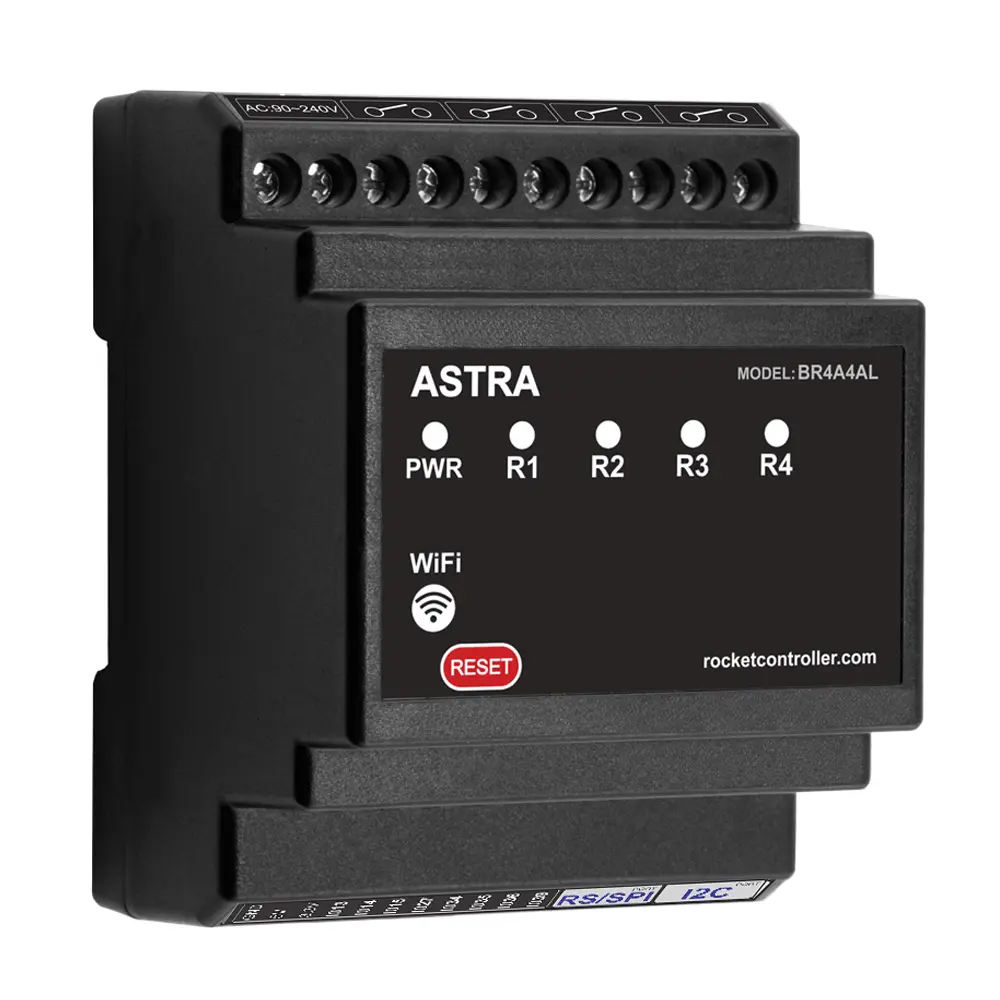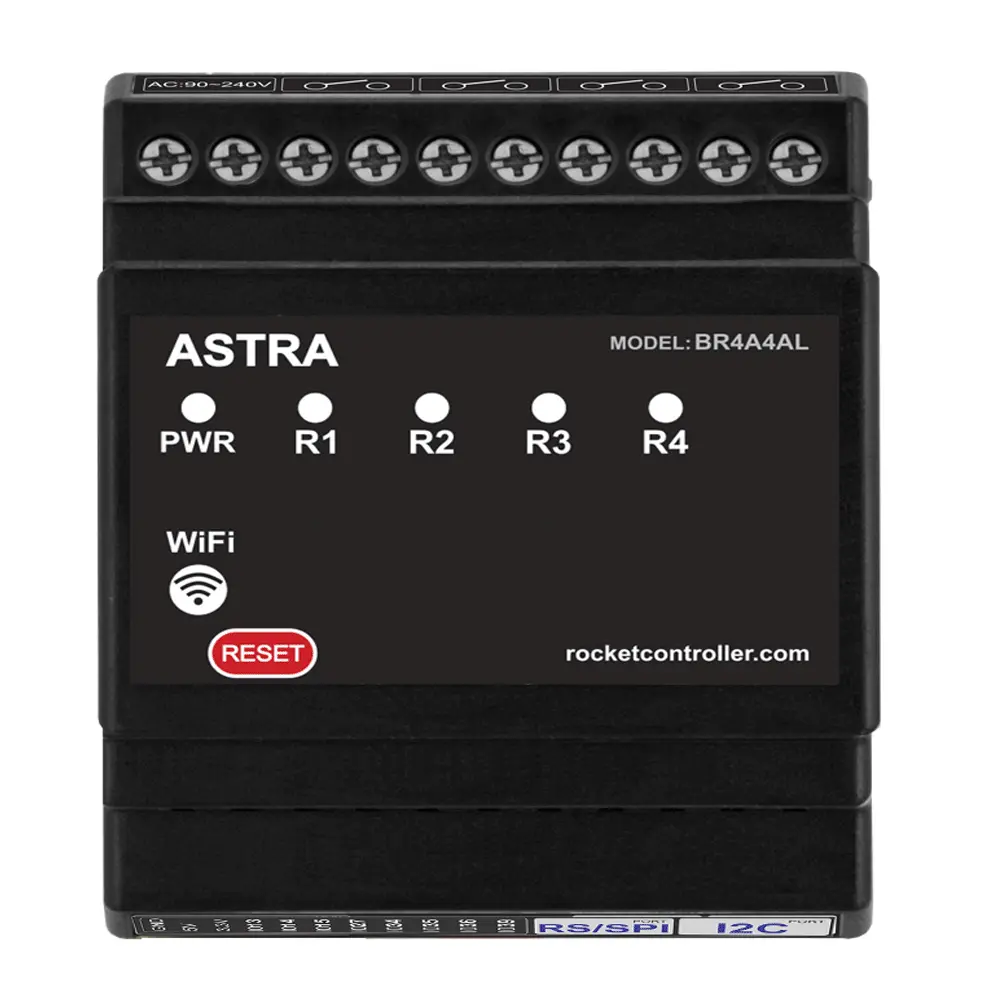Features an impressive array of functions for individual solutions. And cost-effective, space-saving implementation, as well as comprehensive WiFi and expansion options, pay off when automating a home.
Opens up a wide range of DIY projects, smart equipment, smart home, and any control options for building functions, making it the perfect choice for fast, easy, and space-saving implementation of automation projects. Provides the right solution for the convenient control of your heating, air-conditioning, lighting, garden and irrigation, access control, garage door, presence detection, and saunas and pools.
Especially handy is the controller’s ability to connect to a smart home server as well as convenient control via smartphone, tablet, and PC through WiFi.
![]()
Wi-Fi + Bluetooth
4.2 (BR/EDR + LE)
ASTRA module builds and powerful with ESP32 microcontroller, 2.4 GHz Wi-Fi, and Bluetooth LE 4.2 (BR/EDR + LE). Two or one CPU core(s) with adjustable clock frequency, ranging from 80 MHz to 240 MHz.
ASTRA can perform as a complete standalone system or as a slave device to the main controller, reducing communication stack overhead on the main application processor. ESP32 can interface with other systems to provide Wi-Fi and Bluetooth functionality through its UART, I2C, SPI, and SDIO interfaces.
Inputs/Outputs:
- 4 Outputs 16A Relays (250VAC/30VDC) with LED action
- 8 GPIO (3.3V logic level), direct contact to MCU ESP32, not isolated. To this GPIO can connect any sensors and modules for Arduino/MicroPython projects. Pins: GPIO13 (ADC/HPSI MOSI), GPIO14 (ADC/HPSI CLK), GPIO15 (ADC/HPSI CS0), GPIO27 (ADC), GPIO34 (ADC/input only), GPIO35 (ADC/input only), GPIO36 (ADC/input only), GPIO39 (ADC/input only)
- Power Out 5V and 3.3V for powering your projects. Pins: GND, 5V, 3.3V
Power IN:
- AC 90~240(VAC) / DC 7~36(VDC)
Internal UART and SPI socket for additional modules:
- RS-485/Modbus RTU
- KNX
- Z-Wave
- NRF24
- USB
- RF433/315
- Power meter/monitoring
- LED light driver
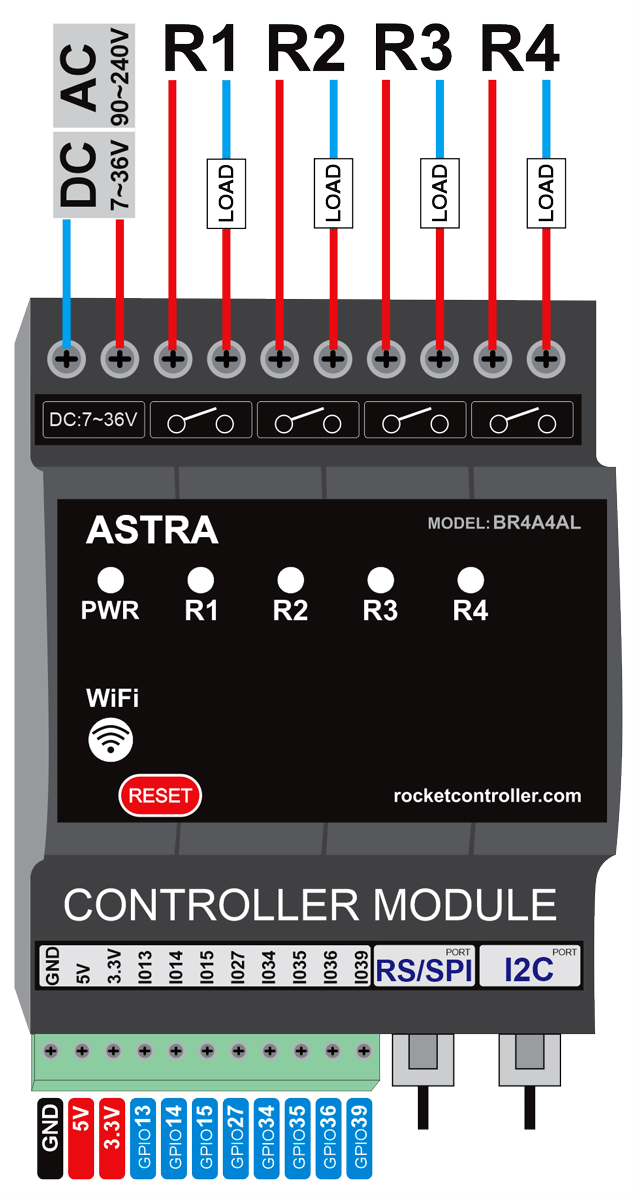
TASMOTA – Open source firmware for ASTRA
Total local control of equipment and simple interface. TAMSOTA device firmware preinstalled and configured to ASTRA controller. Easy to configure for any customs projects. Easy to update and upgrade. Multilanguage interface.
Control using MQTT, Web UI, HTTP or serial.
Automate using timers, rules or scripts.
Integration with home automation solutions.
Incredibly expandable and flexible.
Easy to migrate to ESPHome firmware or any other firmware for ESP32 microcontrollers.
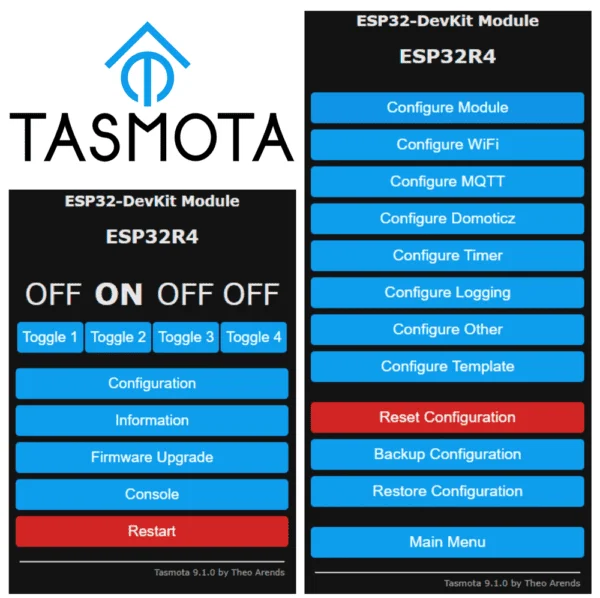
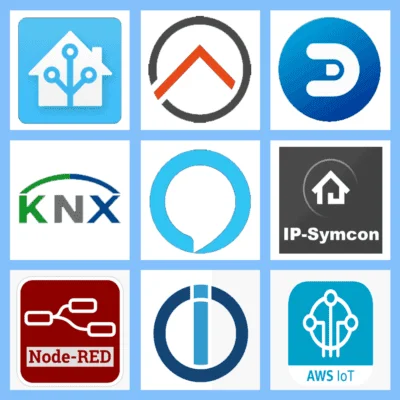
ASTRA easily integrates with many home automation solutions reporting status and sensor data and allowing complete control.
- Alexa
- AWS IoT
- Domoticz
- Home Assistant
- ESPHOME
- Homebridge
- HomeSeer
- IP Symcon
- KNX
- NodeRed
- nymea
- OctoPrint
- openHAB
- IOBroker
- Mozilla WebThings Adapter
- SmartThings
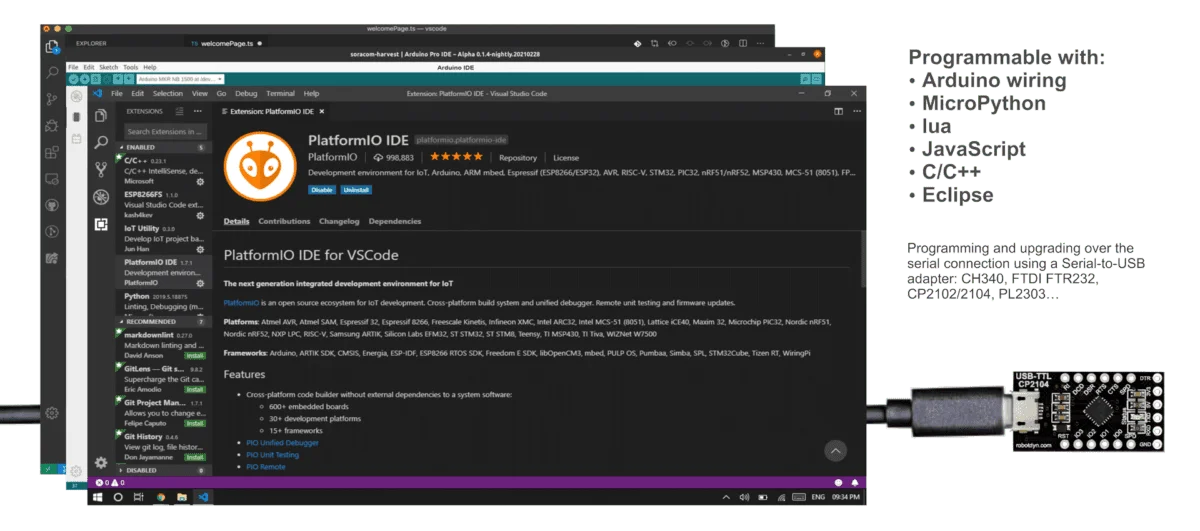
Instruction & Documentation
July 21, 2022

